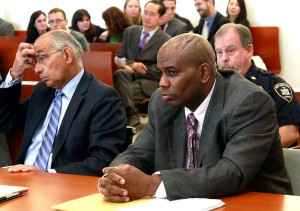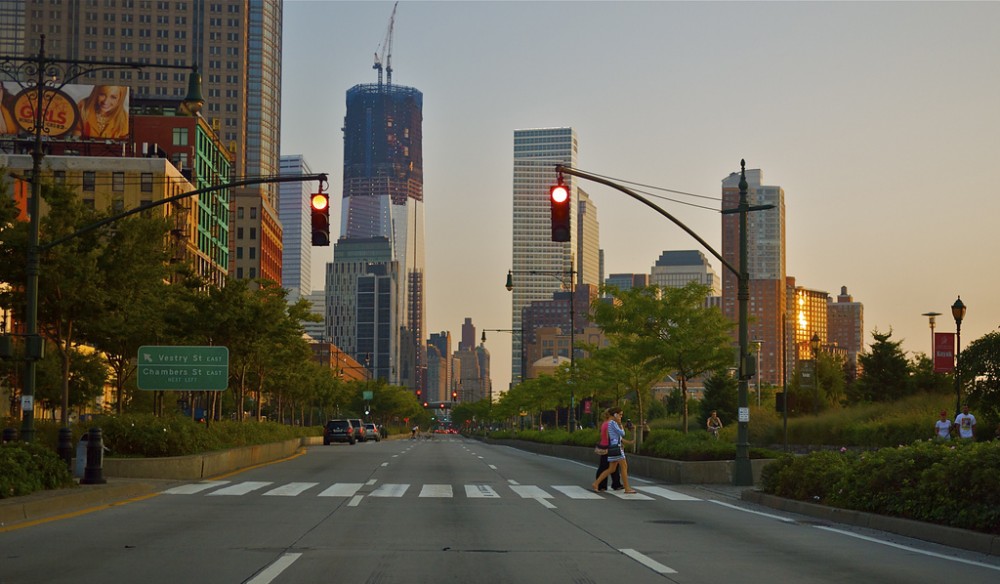
Ophadell Williams, right, the driver of a bus that crashed last year, killing 15 passengers, sat with his lawyer Patrick L. Bruno at the start of his trial in September (NY Times).
In a study published this week in the British Journal Occupational and Environmental Medicine, researchers in Australia and New Zealand report that sleep deprivation can have some of the same hazardous effects as being drunk. Getting less than 6 hours a night can affect coordination, reaction time and judgment, they said, posing “a very serious risk.” The study also said 16 to 60 percent of road accidents involve sleep deprivation. Currently, a Bronx prosecutor is trying to convict Ophadell Williams of manslaughter and criminally negligent homicide for falling asleep at the wheel of a bus that crashed and killed 15 passengers.
No state has laws regarding how much sleep one must get before they can drive making this a tough case for the prosecutor. However, if there were laws on this subject, how many hours of sleep is insufficient to drive; 4 hours of sleep, 6 hours of sleep, or how about 18 hours in a 3 day period. It is grey area in respect to making a law for it.
Hypothetically speaking, if a law was present there would be a problem with determining if one is actually sleep deprived or not. There are no conclusive tests in the field that a police officer can use that determines whether an individual is sleep deprived similar to doing a BAC test for a suspected drunk driver.
In retrospect, this is becoming an increasing problem for the safety of motorists. About one in five adults according to the American Academy of Sleep Deprivation do not get enough sleep. This presents an extreme danger on the road. However, how are we to get around this? Americans are always in a hurry and tend to put sleep on the bottom of their priority list. I know I do as a college student. Coffee seems to be the solution to temporarily solve this quagmire, but does not do the job all the time.
I think we should consider such laws on our books only if we can reasonably assess what amounts to sleep deprivation; it must not be ambiguous. This will stop catastrophic accidents that Mr. Williams is supposedly responsible for and like in this video of a bus driver that fell asleep and hit many cars in front.
Source 1: http://articles.cnn.com/2000-09-20/health/sleep.deprivation_1_sleep-deprivation-impairment-researchers?_s=PM:HEALTH
Source 2: http://www.aasmnet.org/resources/factsheets/sleepdeprivation.pdf

It is interesting that lawmakers are targeting sleep deprivation in particular. I would think that the driving habits of drowsy drivers would fall under the umbrella of reckless driving, and that this particular condition would not need to be singled out. Like you mentioned, it would be difficult to conclusively determine whether or not an individual in question had sufficient sleep to be operating a vehicle. While campaigns against drowsy driving would increase the safety of the transportation network, it doesn’t seem entirely realistic to approach the issue beyond public awareness campaigns.
I refuse to believe whatever the above article is saying, it is entirely unethical.
16-60 percent, what kind of figure is that??????????????????????
Can you please elucidate on why this post is unethical? And what is wrong with that figure?
http://hantransportationblog.wordpress.com/2012/12/07/my-response-to-andrew-bahrs-blog-on-sleepy-drivers/